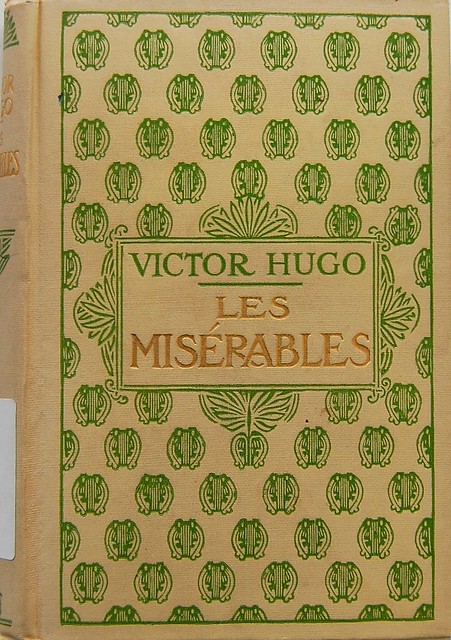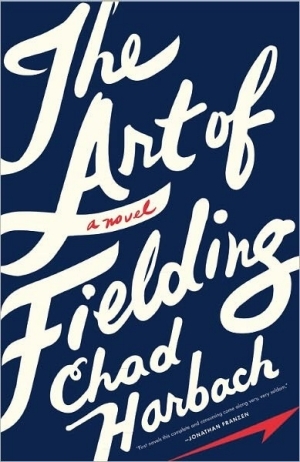 People, I read Les Miserables, and I am pretty proud I finished it. I went into the book having never seen any of the movie or musical adaptations, so I had a pretty clean palate aside from the multitudinous Les Miserables movie previews from earlier this year. It has a great storyline that Victor Hugo weaves exceptionally well during the mid-1800s. However, somehow all my history education seems to have skipped this key moment in French history - never learned about Napoleon, and the only things I know about the French Revolution I learned from A Tale of Two Cities. Hugo does take asides throughout the book to explain the history around what is occurring or has occurred that concerns his characters, but they were so tedious to read! It was like watching Die Hard only to have a 30-minute aside on the history of the LAPD, then 20 minutes later an aside on Russian terrorism, then 45 minutes later one on the history of firearms. I skimmed/skipped over some of it -I know, sacrilege! The political commentary Hugo provided seemed incredible, but I had nothing to base what he was saying off of. However, the story compelled me to keep reading, and I am glad I did. Fantastic imagery, phenomenal characters, and morals and truths that are universal. So, read this book, but it is okay if you read an abridged version. All the plot is there, just not all the "history of..." Also, I would suggest taking a break midway and reading something easier over a weekend. I personally read Amsterdam by Ian McEwan.
People, I read Les Miserables, and I am pretty proud I finished it. I went into the book having never seen any of the movie or musical adaptations, so I had a pretty clean palate aside from the multitudinous Les Miserables movie previews from earlier this year. It has a great storyline that Victor Hugo weaves exceptionally well during the mid-1800s. However, somehow all my history education seems to have skipped this key moment in French history - never learned about Napoleon, and the only things I know about the French Revolution I learned from A Tale of Two Cities. Hugo does take asides throughout the book to explain the history around what is occurring or has occurred that concerns his characters, but they were so tedious to read! It was like watching Die Hard only to have a 30-minute aside on the history of the LAPD, then 20 minutes later an aside on Russian terrorism, then 45 minutes later one on the history of firearms. I skimmed/skipped over some of it -I know, sacrilege! The political commentary Hugo provided seemed incredible, but I had nothing to base what he was saying off of. However, the story compelled me to keep reading, and I am glad I did. Fantastic imagery, phenomenal characters, and morals and truths that are universal. So, read this book, but it is okay if you read an abridged version. All the plot is there, just not all the "history of..." Also, I would suggest taking a break midway and reading something easier over a weekend. I personally read Amsterdam by Ian McEwan.
In keeping with a history theme, another book I read since last we met was Wolf Hall by Hilary Mantel. Fortunately for me, I am quite well-versed in Henry VIII and English happenings during this time period. I sort of accidentally majored in it, both the history and English literature side of it. Most of what I know of this time is from the perspective of Henry VIII and his various wives. Wolf Hall, however, takes the perspective of Thomas Cromwell, who served as chief minister to Henry VIII and strongly advocated English Reformation. Cromwell knows how tenuous a position with the king is, and knows to keep it he has to be a step ahead of everyone, or at least know enough dirt about key players to "encourage" them to agree with him, if need be. There are plenty of underhanded dealings, betrayals, and sacrifices throughout the book to keep one interested. I am looking forward to reading the next novel in the series, Bring Up the Bodies, which picks up the story as Anne Boleyn falls from the king's grace.
 Now, to take a sharp left turn to baseball! The Art of Fielding by Chad Harbach is a book I all but devoured. The story follows Henry Skrimshander, a college freshman and shortstop wunderkind, who had never missed a throw...until he does. His life, and the lives of those around him, are thrown into disorder in part due to this missed throw. If this is sounding too sports-centric for you, do not worry, this is not a book about baseball. Well, at least not solely about baseball. The Art of Fielding is about growing up, following your passion, and learning to be okay with who you are. How good is this novel? When I finished the last page, I was ready to start again at page one.
Now, to take a sharp left turn to baseball! The Art of Fielding by Chad Harbach is a book I all but devoured. The story follows Henry Skrimshander, a college freshman and shortstop wunderkind, who had never missed a throw...until he does. His life, and the lives of those around him, are thrown into disorder in part due to this missed throw. If this is sounding too sports-centric for you, do not worry, this is not a book about baseball. Well, at least not solely about baseball. The Art of Fielding is about growing up, following your passion, and learning to be okay with who you are. How good is this novel? When I finished the last page, I was ready to start again at page one.
A second book I may have actually devoured a little was Before I Go to Sleep by S.J. Watson. Oh my goodness, what can I say about this book?! This book is extremely twisty and shocking, so do not go spoiling it for yourself by reading too many synopses or reviews. You will be sorry. What can I tell you about the book? It is the story of Christine who, due to an accident years ago, cannot form new memories. She awakes every day wondering where she is, who is in the bed beside her, how she was injured, and can she get her memory back. The novel is set up as her diary, something a doctor interested in her case told her to keep. Each day, as she reads what she wrote previously, she begins to learn more about her lost life. Or does she? Is what she is writing truth, or is it a fiction she made for herself? From one entry to the next, I had a new theory on who the "big bad" was, what happened to her, and what the conspiracy could be; but when the reveal came, I was shocked! After I read it, mouth agape half the time, Aaron read it while on a business trip. He stayed up until about 3 am finishing it. It is that awesome.

